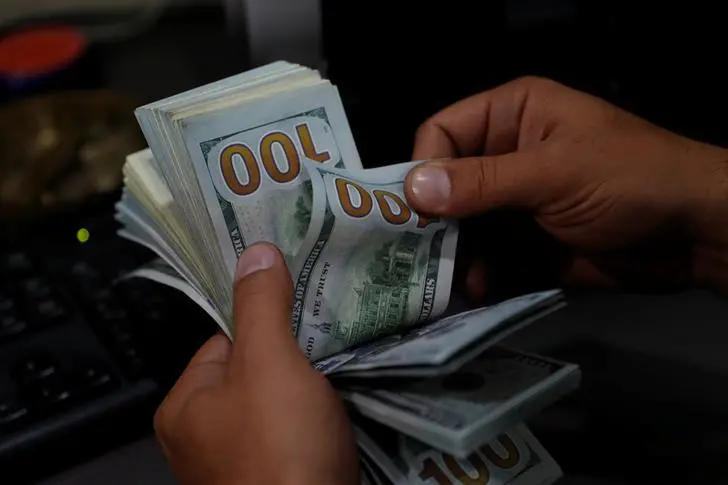PHOTO
LONDON- The U.S. dollar edged higher on Thursday as factors ranging from rising trade tensions to fears of a second wave of the coronavirus fuelled demand for safe-haven currencies.
The dollar index advanced 0.1% to 97.35 but remained below a 2020 high of near 103 in late March.
"As U.S. infections rise again, markets are re-assessing the chances of a rapid return to 'normal' economic activity. If we have to learn to live with and control a virus for some time, rapid recoveries in PMIs and labour markets will stall at a lower level of activity," said Kit Juckes, macro strategist at Societe Generale, referring to Purchasing Managers' Index surveys.
"That is holding us back from calling a significant reversal in the dollar's fortunes this year," Juckes said.
The euro retreated 0.3% to $1.1222, disregarding a fall in France's jobless total in May after it reached record levels the previous month.
The Japanese yen fell 0.2% to 107.21.
A resurgence of COVID-19 cases from the United States to Kyrgyzstan fuelled fresh fears that the V-shaped economic recovery expected by the market was in jeopardy.
The International Monetary Fund slashed its 2020 global output forecasts further, predicting more damage from the pandemic than it had previously expected.
Also souring the mood was news that Washington is considering changing tariff rates for various European products as part of the trading partners' aircraft dispute.
Canada's dollar weakened to a 10-day low of $1.3666 after it became the first country to lose its AAA rating as a result of coronavirus-fuelled government spending, before recovering to trade 0.1% up on the day.
"The far-reaching financial support the Canadian government has provided to cushion the effects of the corona restrictions have come at a price", Commerzbank analysts commented.
Elsewhere, Scandinavian currencies rose against both the U.S. dollar and the euro, with the Swedish crown up 0.5% against the euro.
Traders will be watching U.S. durable goods and initial jobless claims data at 1230 GMT. Both are projected to come in weaker than the previous readings, according to economists polled by Reuters.
(Reporting Julien Ponthus in London and Hideyuki Sano in Tokyp; editing by Saikat Chatterjee, Larry King, Kirsten Donovan) ((hideyuki.sano@thomsonreuters.com; +81 3 4563 2768;))





















